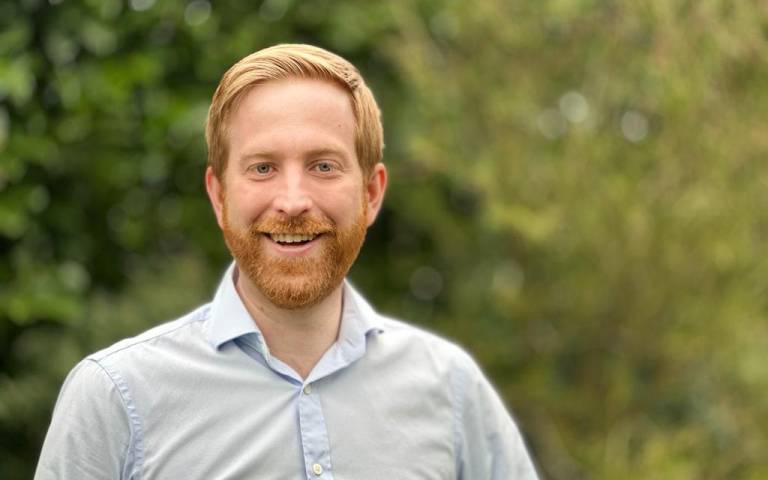Spotlight on: Information in Society BSc
13 March 2023
The Information in Society BSc is an innovative degree launching in September 2024 at UCL East. Programme Director Dr Adam Crymble tells us more about this exciting new course.

What does 'information in society' mean?
Information is everywhere, and increasingly it's being used to make decisions that affect our lives, sometimes without active human intervention. It's deciding who gets a mortgage, who gets hired for a job, or which video shows up next on your social media feed. Even how our governments prioritise policies or seek our support during elections is informed by information and data.
That makes it dangerous if used irresponsibly, but also fabulously empowering if used in the service of good.
This programme has been introduced to help train the next generation of creative and passionate individuals who want to harness data and information for the benefit of our societies. Students will be part of the world-renowned Department of Information Studies, which has been training information professionals for more than a century.
What type of students would suit this course?
Information in Society BSc is for students who are looking to develop their humanities skills and their technical abilities to an advanced level, and who have a deep fascination with how societies can use data and information effectively to support, inspire, and improve lives.
We expect that applicants to the Information in Society BSc will either be more comfortable in humanities-linked skills such as writing and small group discussion or with technology and maths related areas. By the end of the programme, we hope they'll feel confident in both areas, and be ready to lead impactful work in the service of a society that increasingly needs flexible thinkers.
Tell us more about the course structure and modules
Your first year provides a balanced foundation for your degree, introducing technical skills (programming, maths, web technologies), and a critical understanding of how societies use information in decision-making (social anthropology or social theory, ethics, information literacy).
In the second year you will deepen your knowledge to address increasingly complex information problems that bridge the socio-technical divide. From digital media platforms to the information life cycle, to data mining and databases, the focus of the second year is to take those foundational skills into real-world scenarios
In your final year, you have the chance to focus and specialise towards a career or study path that most interests you. The degree culminates with a dissertation under the direction of an academic supervisor.
The course is assessed through portfolios of creative or technical work, essays and reports, presentations, and technical assignments.
What are some of the possible career opportunities for graduates?
With an interdisciplinary background that combines humanities and technology, strong communication and leadership skills, and embedded exposure to collaboration strategies, we believe that graduates of the Information in Society BSc should be attractive to employers with real-world problems to solve. Some fields where graduates would be well suited to work are:
- Tech companies and startups
- Policy, research, and consultancy organisations
- Data analysis and information management
- Charitable/third sector organisations and social enterprise
- The creative industries and cultural heritage, including libraries, archives, museums, publishing, journalism, and digital humanities organisations.
- Government
- Education
The programme would also suit student who would like to go onto postgraduate study. With a set of skills that straddles information studies, technology, and the humanities, there are several pathways for further study. Subject to individual course prerequisites, that could be in technology or data science, or degrees in the humanities.
UCL's Department of Information Studies in the Faculty of Arts & Humanities, where the Information in Society BSc sits, offers MA and MSc degrees in information studies, digital humanities, publishing, library science, and archival science, all of which graduates of this programme would be strong candidates for.
Tell us more about studying at UCL East
Based in London at UCL East, you’ll be studying at UCL’s new campus at East Bank: the UK’s newest Cultural Quarter at the heart of the Queen Elizabeth Olympic Park in Stratford, East London. You’ll also have the chance to take optional and elective modules (pending availability) at our Bloomsbury campus on the doorstep of the British Library and British Museum.
Our UCL East campus offers a unique studying, living and working environment where interdisciplinary study and cross-disciplinary research can really thrive, with an emphasis on shared labs, studios and workshops, and even campus-wide modules on themes like sustainability and collaborative design.
What is one piece of advice you would give students when they start the course?
The most important thing is to bring a willingness to learn new skills and approaches to knowledge.
Further information
- Find out more about Information in Society BSc including answers to Frequently Asked Questions
- Read more about UCL East
- Find out more about Programme Director Dr Adam Crymble
 Close
Close

